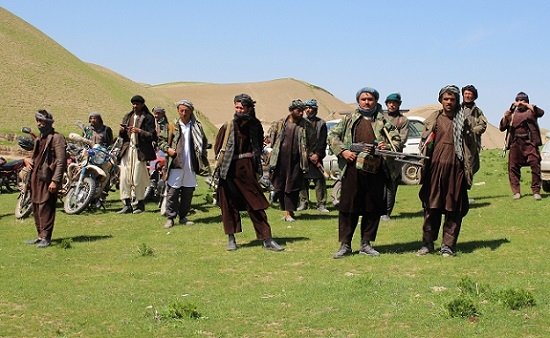Special Desk
Taliban have intensified campaign, capturing five provincial capitals in just two days. The latest to fall is Kunduz, the capital of northern Kunduz province.
Six regional capitals have fallen to the Taliban in the past three days and the latest Kunduz is their latest and most significant gain.
Taliban have captured a key northern Afghan city of Kunduz,after fierce fighting with government forces.
All but the city’s airport had fallen to the militants. The group’s flag was seen raised in the city centre. Chaotic scenes have been reported with buildings and shops ablaze.

Families living in the region have stories to tell about how they saw the fighting between the two groups, and the lost family members.
Thousands of civilians have been displaced during the fighting this year. The militants also fought their way into another northern city, Sar-e-Pul, which was captured within hours of Kunduz.
Afghan officials insist their forces remain in the cities that have fallen, and fighting is ongoing.
Violence has escalated across Afghanistan after US and NATO forces began to withdraw their troops from the country, after 20 year long military operations.
Taliban militants have made rapid advances in recent weeks. Having captured large swathes of the countryside, they are now targeting key towns and cities.
There is also heavy fighting in Herat in the west, and the southern cities of Kandahar and Lashkar Gah. Families, including babies and young children, have been sheltering in a school in the north-eastern city of Asadabad.
Families had to watch bombs dropped in their villages. The Taliban destroyed everything and people had to leave homes to face difficulties in shelter homes and in about 45 degree Celsius heat outside. Many don’t known where are their family members.
Kunduz is the most significant gain for the Taliban since they launched their offensive in May this year.
The city, which is home to 270,000 people, is considered a gateway to the country’s mineral-rich northern provinces. And its location makes it strategically important as there are highways connecting Kunduz to other major cities, including the capital Kabul, and the province shares a border with Tajikistan.
Border is used for the smuggling of Afghan opium and heroin to Central Asia, which then finds its way to Europe. Controlling Kunduz means controlling drug smuggling route in the region.
 Jubilee Post News & Views
Jubilee Post News & Views





